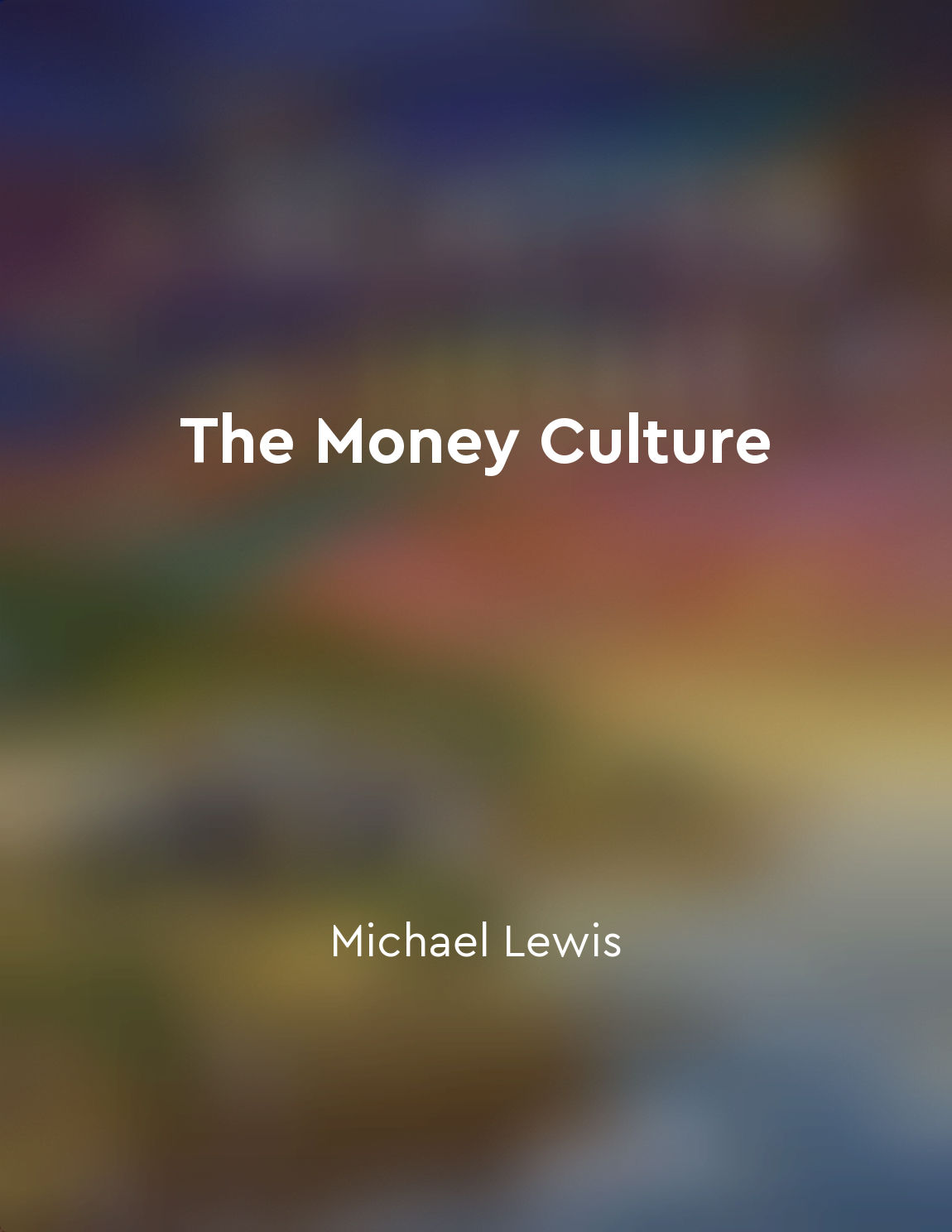Financial institutions shape labor markets from "summary" of Labor in the Age of Finance by Sanford M. Jacoby
Financial institutions play a crucial role in shaping labor markets by providing the necessary financing for businesses to operate and grow. Without access to capital, businesses would not be able to hire employees, invest in new technology, or expand their operations. As a result, the health of financial institutions has a direct impact on the availability of jobs and the overall stability of the labor market. One way in which financial institutions influence labor markets is through their lending practices. Banks and other financial institutions determine who has access to credit and at what cost, which can have a significant impact on businesses' ability to hire and retain employees. For example, during times of economic downturn, banks may tighten their lending standards, making it more difficult for businesses to secure the financing they need to maintain or expand their workforce. In addition to providing capital, financial institutions also play a role in shaping labor markets through their investment decisions. Pension funds, mutual funds, and other institutional investors often have significant stakes in companies, giving them the power to influence corporate decision-making, including hiring and compensation practices. For example, institutional investors may pressure companies to cut costs by laying off employees or reducing wages in order to boost short-term profits and stock prices. Furthermore, financial institutions can also influence labor markets through their role in mergers and acquisitions. When companies merge or acquire one another, it can lead to job losses as duplicate positions are eliminated and operations are streamlined. Financial institutions often play a key role in facilitating these transactions by providing the necessary financing and expertise, which can have far-reaching implications for workers in the affected industries.- The relationship between financial institutions and labor markets is complex and multifaceted. From providing capital to influencing corporate decision-making to facilitating mergers and acquisitions, financial institutions play a central role in shaping the dynamics of the labor market. It is essential for policymakers, businesses, and workers to understand these dynamics in order to navigate the challenges and opportunities presented by the modern economy.
Similar Posts
The financial industry profits from the herd mentality of investors
The financial industry is famously adept at profiting from the herd mentality of investors. When a particular investment become...
Variations in the money supply can lead to booms and busts in the economy
The relationship between the money supply and economic booms and busts is a crucial aspect of understanding the fluctuations in...

Speculation can lead to market bubbles
Speculation is the act of buying an asset with the expectation that its price will rise in the future. When investors believe t...

Diversification minimizes risk
Diversification is a fundamental concept in finance that is designed to spread risk across a variety of assets within an invest...
Investors faced severe losses
Investors faced severe losses. The decline of stock values was relentless. Those who had bought on margin were in an especially...
Utilize various valuation methods
The process of determining the value of a security involves the use of a variety of methods. Each method offers a different per...

Technological advances
Technological advances have transformed the way we live, work, and communicate in the modern world. These advances have revolut...
Massive wealth inequality plagues society
The chasm between the haves and the have-nots has widened to an alarming extent in our society. While a small elite amasses uni...
The incompetence of credit rating agencies
Credit rating agencies were the supposed experts who were supposed to assess the risk of mortgage-backed securities. They were ...

Speculation drives asset bubbles
In the financial world, there exists a phenomenon where speculation plays a significant role in driving asset bubbles. These bu...

